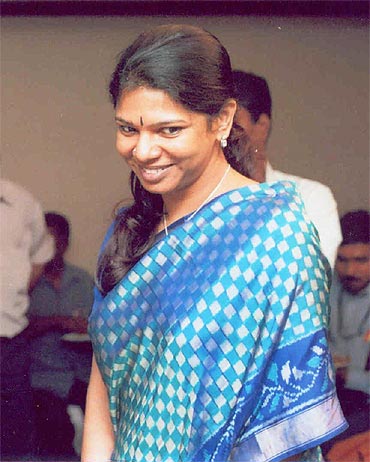
While the arrest of Kanimozhi in the 2G scam is a good development, there is still a long way to go for the CBI in the case. Sheela Bhatt on the repercussions of the arrest.
"So do you think the Congress is a paragon of virtue?" asked an angry member of Parliament from the Dravida Munnetra Kazhagam defending his mentor M Karunanidhi's daughter and party MP Kanimozhi's arrest on Friday.
Those of us who are celebrating the judgment of Judge O P Saini should know that despite the shock waves of arrest of Kanimozhi and the shame for serious allegations in the charge-sheet within the DMK, it will be a temporary setback for the sturdy regional party.
Those who have met former minister A Raja in Tihar jail are claiming that he is fully confident that he will be able to fight the case in a court of law.
Its not just rhetoric that many members of the DMK truly believe that the Central Bureau of Investigation's case is weak and there is no legal evidence of linkages between the loan given by Shahid Balwa's companies to Kalaignar TV and allotment to the 2G spectrum by Raja to Balwa's Swan Telecom.
...
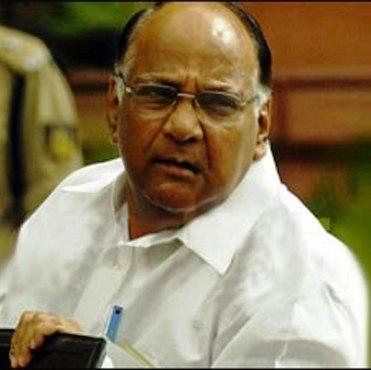
In a political world, allies of the United Progressive Alliance see the entire development as the Congress's brutal attempt to show off that they are 'cleaner' than 'the regional outfits'. These DMK sympathisers say that if anyone believes that the 2G case will change the ways business is handled in New Delhi, they are wrong.
They say the 2G scam and its investigation suits the Congress's current game plan. The Congress wants to demolish the credibility of regional parties and restrict them to the states.
In the last two years, Sharad Pawar's Nationalist Congress Party and the DMK have suffered serious blows to their credibility. The leaders of these parties are blaming Congress singularly for their plight.
When rediff.com, argued with a DMK MP that there is, so far, no evidence against Congress's involvement in the 2G scam, he retorted, "Are you telling me the Congressmen are the most non-corrupt people in India? If the charges (of a Rs 200 crore bribe) against us are true then you want to say that till the court raised the issue, the Congressmen were unaware of it? If they were not unaware then do you think they will allow us to take money home?"
...
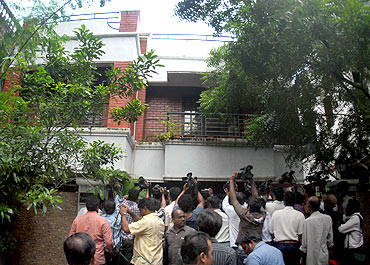
The senior DMK MP, who was in the court room with Kanimozhi, argued, "The Congress and the BJP want to ensure that the regional parties should not meddle in affairs of New Delhi and they should restrict their sphere of influence only in the respective state capitals. The media is also biased and is not looking around for evidence of corruption to nail the so-called mainstream parties."
However, as it happens on all such big occasions, there are multiple factors behind Friday's developments. First and foremost, the Supreme Court's two-judge bench must be given credit that because it was their relentless pursuance of the scam that led to the chain of events and two charge-sheets had to be filed by the CBI.
It's also true that once the Supreme Court took up the case, political forces in power were not in a position to obstruct the case because of the media hype. When the 2G scam was away from media's glare, the UPA government did enough to hush-up the case by delaying its investigations.
...
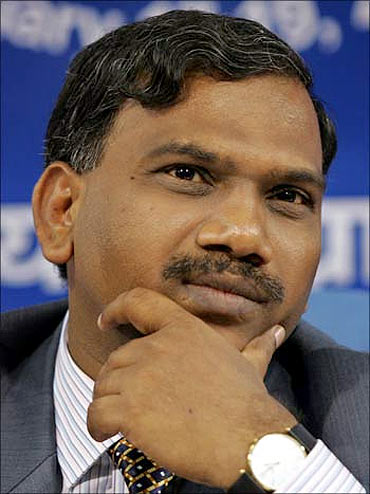
Have a look at the chronology of the scam.
January 10, 2008: Raja's Department of Telecommunications decides to issue licences on first-come-first-serve basis. On the same day, the DoT announced that those who apply between 3.30 and 4.30 pm would be issued licences in accordance with the just announced policy.
May 4, 2009: A NGO telecom watchdog filed a complaint to the Central Vigilance Commission saying the allotment was illegal. Same month the CVC directed the CBI to investigate the irregularities in allocation of 2G spectrum. For more than year things moved in slow motion.
Only when lawyer Prashant Bhushan and politician Subramanyam Swamy took the case vigorously in the apex court and into the media, things moved. There is no doubt that the rejection of Kanimozhi's bail application was one of the great newsy moments that rarely comes.
In rarest of rare cases we see, in this corruption-ridden country, a powerful person's daughter going to Tihar jail. Moreover, the charge is also so fantastic that the millions of middle-class people can never fathom it, properly. Most Indians believe that powerful people are not fined even for traffic violations so Kanimozi's imprisonment is a phenomenon.
...
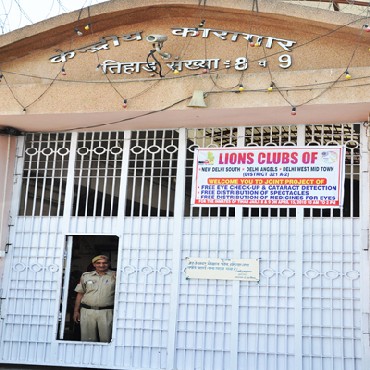
A woman, a lover of literature, a soft-spoken leader and a daughter whose mother has faced humiliations of being 'the other woman' in a large family is now bearing allegations of taking a bribe of Rs 200 crore, amazes everyone.
In the new India becoming rich is smart and sexy but getting richer by Rs 200 crore, that too overnight, by allocating spectrum is not-dreamed of.
One is gasping for words to describe that the person who is able to take Rs 200 crore bribe can, really became so powerless that nothing could help her to avoid going jail. That's the might of the law.
That is overwhelming event in today's India. Of course, the charges against Raja and Kanimozhi are not yet proven and there is a long way to go but even the diehard cynics of the Indian system will have to accept that in this stinking corrupt system a person who has taken a Rs 200 crore bribe could not bribe her way through to avoid going to a 15 ft x 10 ft cell in Tihar jail.
...
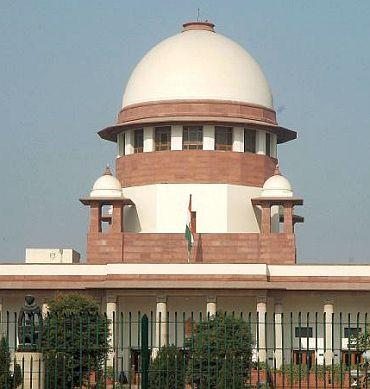
The buck has stopped somewhere and for it lesser mortals like the Indian voters can only thank the Supreme Court.
However, if Raja is telling whoever cares to listen to, that he will come out clean then it surely means that for people it's too early to celebrate even if Kanimozhi is sitting right now in a women's cell with a minor allowance of having south Indian food.
If after detection of the 2G spectrum case, the system is not changed to ensure that public property is not looted in favour of a selected few then what's the use of this tamasha of a powerful politician's daughter going to jail?
And, equally importantly, if the charges of corruption against Raja and Kanimozhi are not proved in the court of law then this moment will end up in a national tragedy. Many lawyers are privately saying that it's possible that this case may face the fate of the the Jain Hawala case, in which the prime accused was not convicted.
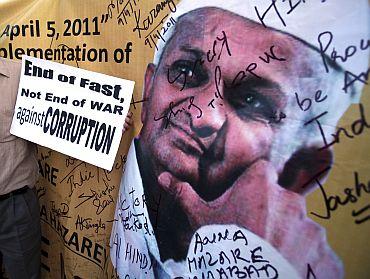
Actually, Raja's confidence is a signal. Anil Divan, a distinguished lawyer of the Supreme court who has fought many celebrity cases including the Jain Hawala case says, "Kanimozhi's arrest is a good development. A powerful member of political party is treated as equal before the court of a law."
But, beyond that, if the country has to make real sense of Kanimozhi's arrest, then the country needs real independence of the CBI whose officers and lawyers will have to stand the battery of lawyers of the accused, day after day, in the trial to defend their case against the accused.
Divan told rediff.com, "If Indian democracy has to develop further the rule of law have to be improved. The investigation and prosecution have to be totally independent of political executives."
As of today, the CBI is not totally independent. Until the Jan Lokpal bill comes and prepares the case for a totally independent CBI, the 2-G spectrum case will remain in realm of danger of going the Jain Hawala way.
At the end of day, let us accept that it's too early to say that, in the India of 2011, the system can humble the rich and powerful.